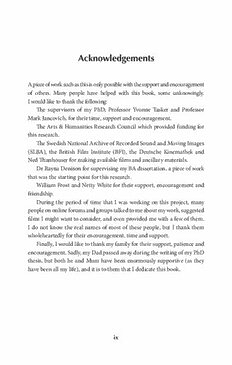
Queer Sexualities in Early Film: Cinema and Male–Male Intimacy PDF
206 Pages·2016·1.644 MB·English
Most books are stored in the elastic cloud where traffic is expensive. For this reason, we have a limit on daily download.
Preview Queer Sexualities in Early Film: Cinema and Male–Male Intimacy
Description:
Since the publication of Vito Russo's seminal study The Celluloid Closet in 1981, much has been written about the representation of queer characters on screen. Until now, however, relatively little attention has been paid to how queer sexualities were portrayed in films from the silent and early sound period. By looking in detail at a succession of recently-found films and revisiting others, Shane Brown examines images of male-male intimacy, buddy relationships and romantic friendships in European and American films made prior to 1934, including Different from the Others and All Quiet on the Western Front. He places these films within their socio-political and scientific context and sheds new light on how they were intended to be viewed and how they were actually perceived. In doing so, Brown offers his readers a unique insight into a little known area of early cinema, queer studies and social history.
See more
The list of books you might like
Most books are stored in the elastic cloud where traffic is expensive. For this reason, we have a limit on daily download.
